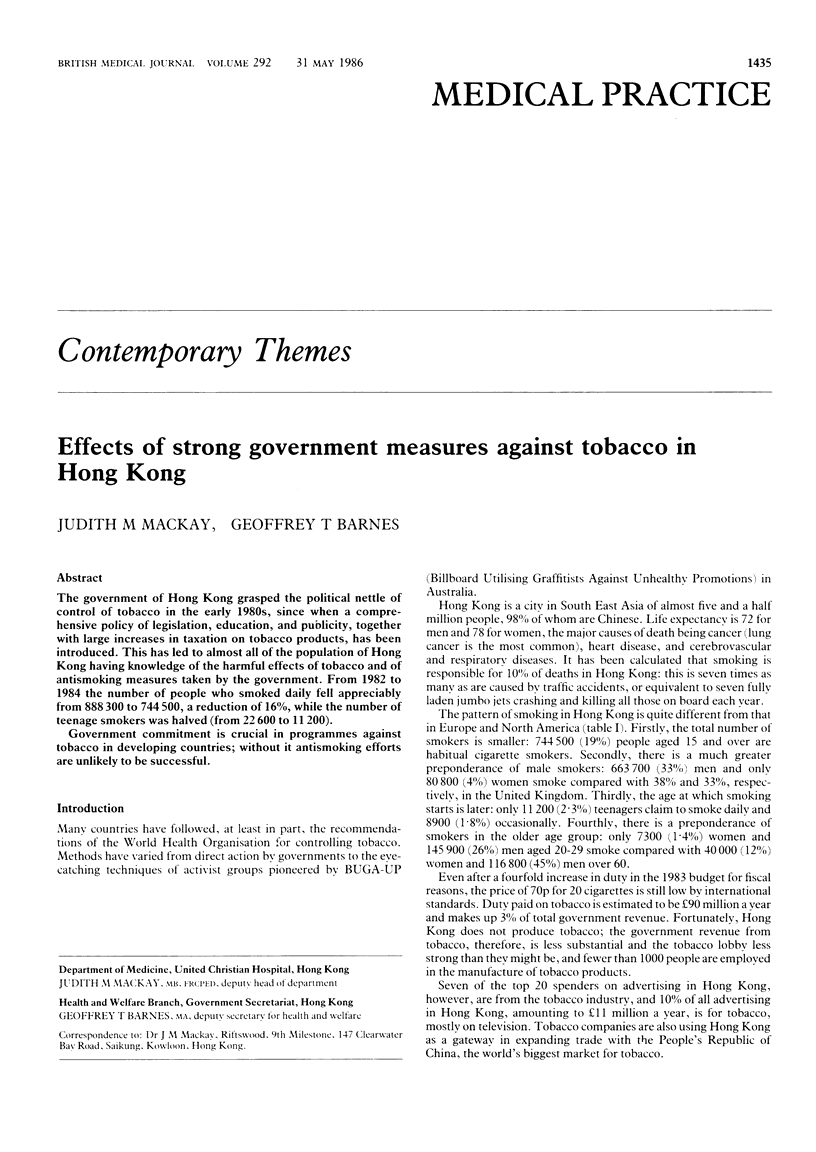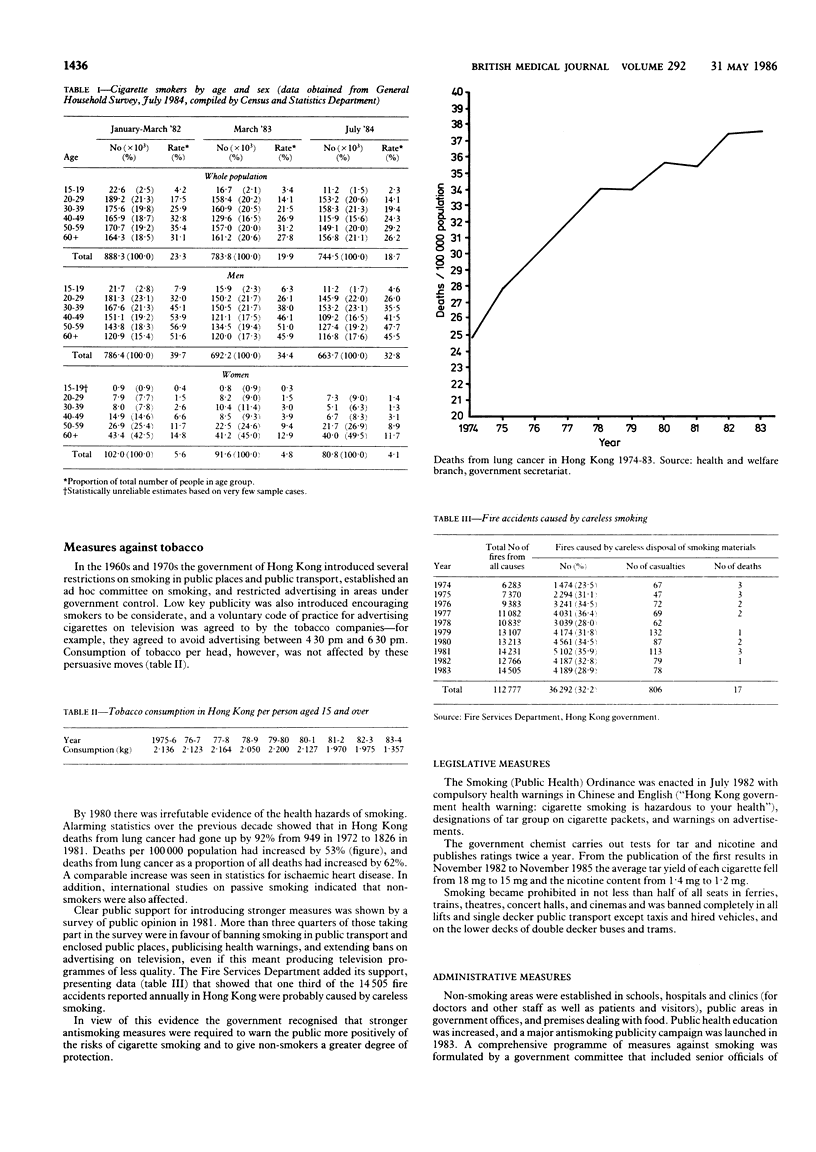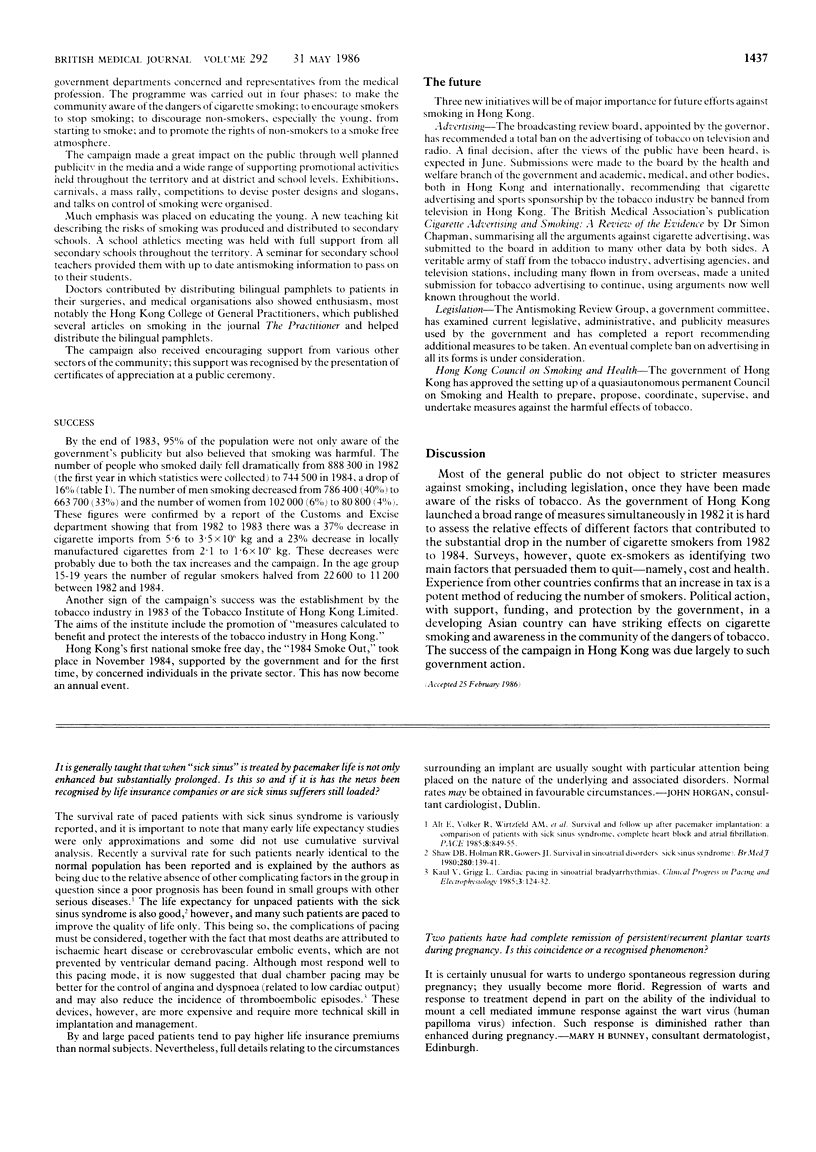Abstract
The government of Hong Kong grasped the political nettle of control of tobacco in the early 1980s, since when a comprehensive policy of legislation, education, and publicity, together with large increases in taxation on tobacco products, has been introduced. This has led to almost all of the population of Hong Kong having knowledge of the harmful effects of tobacco and of antismoking measures taken by the government. From 1982 to 1984 the number of people who smoked daily fell appreciably from 888 300 to 744 500, a reduction of 16%, while the number of teenage smokers was halved (from 22 600 to 11 200). Government commitment is crucial in programmes against tobacco in developing countries; without it antismoking efforts are unlikely to be successful.
Full text
PDF


Selected References
These references are in PubMed. This may not be the complete list of references from this article.
- Alt E., Völker R., Wirtzfeld A., Ulm K. Survival and follow-up after pacemaker implantation: a comparison of patients with sick sinus syndrome, complete heart block, and atrial fibrillation. Pacing Clin Electrophysiol. 1985 Nov;8(6):849–855. doi: 10.1111/j.1540-8159.1985.tb05904.x. [DOI] [PubMed] [Google Scholar]
- Shaw D. B., Holman R. R., Gowers J. I. Survival in sinoatrial disorder (sick-sinus syndrome). Br Med J. 1980 Jan 19;280(6208):139–141. doi: 10.1136/bmj.280.6208.139. [DOI] [PMC free article] [PubMed] [Google Scholar]


